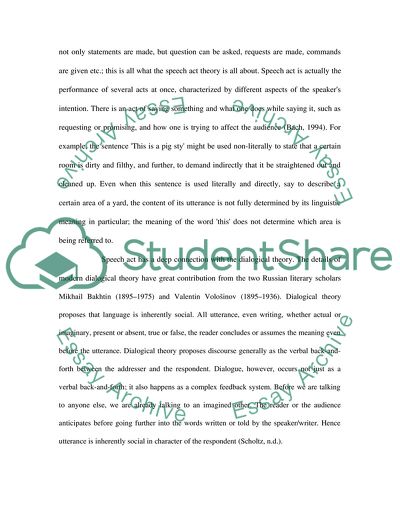Cite this document
(Speech Act Norms in a Dialog Discourse Research Paper, n.d.)
Speech Act Norms in a Dialog Discourse Research Paper. Retrieved from https://studentshare.org/humanitarian/1738423-speech-act-norms-in-a-dialogic-discourse
Speech Act Norms in a Dialog Discourse Research Paper. Retrieved from https://studentshare.org/humanitarian/1738423-speech-act-norms-in-a-dialogic-discourse
(Speech Act Norms in a Dialog Discourse Research Paper)
Speech Act Norms in a Dialog Discourse Research Paper. https://studentshare.org/humanitarian/1738423-speech-act-norms-in-a-dialogic-discourse.
Speech Act Norms in a Dialog Discourse Research Paper. https://studentshare.org/humanitarian/1738423-speech-act-norms-in-a-dialogic-discourse.
“Speech Act Norms in a Dialog Discourse Research Paper”, n.d. https://studentshare.org/humanitarian/1738423-speech-act-norms-in-a-dialogic-discourse.


